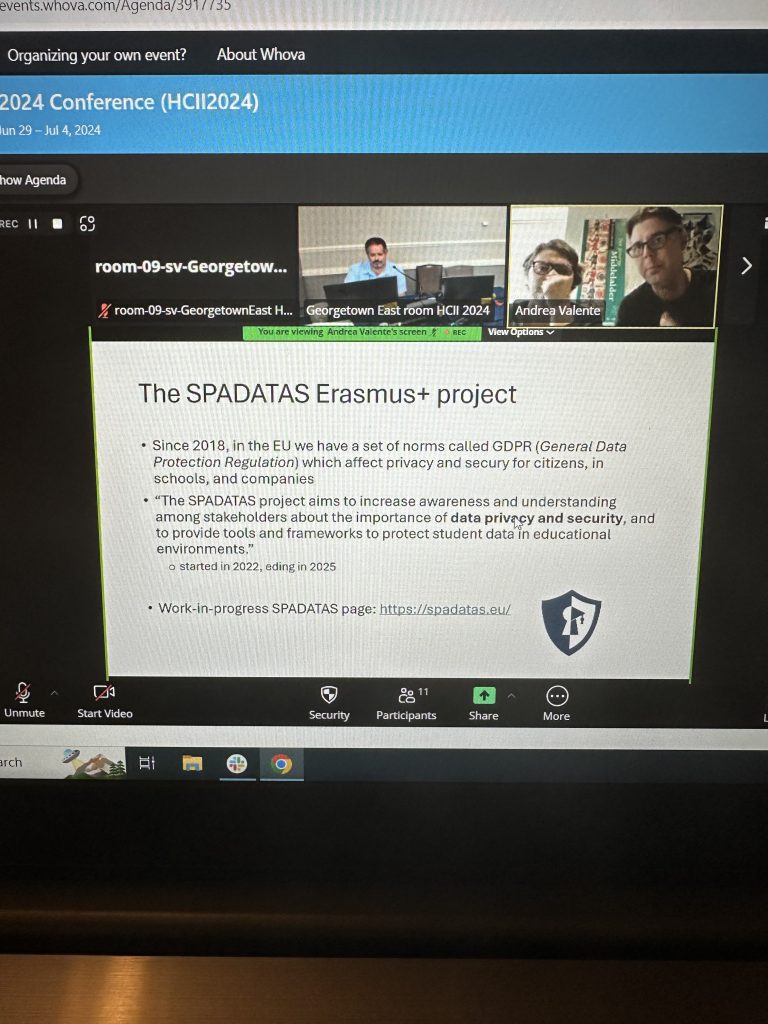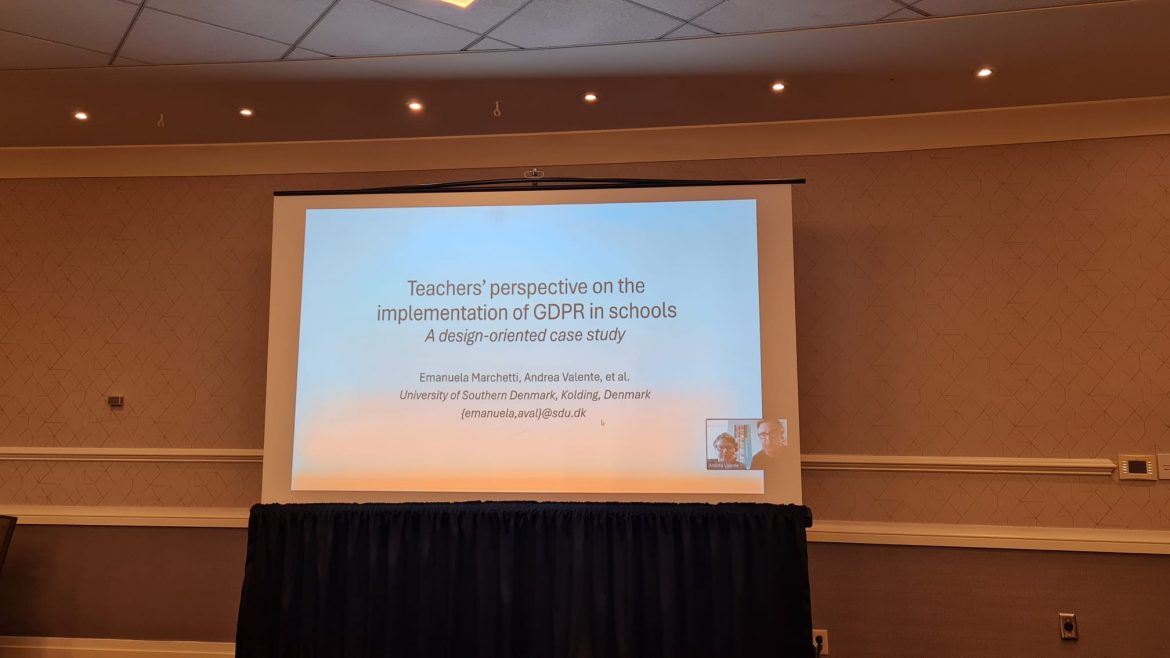At the 26th International Conference on Human-Computer Interaction (HCII 2024), held from June 29 to July 4 in Washington D.C., Emanuela Marchetti and Andrea Valente from the University of South Denmark presented a collaborative paper titled “Teachers’ Perspective on the Implementation of GDPR in Schools – A Design-Oriented Case Study.”
The paper investigates the impact of the General Data Protection Regulation (GDPR) on teachers’ practices within the educational environment. The study aims to understand how the introduction of GDPR has affected teachers, focusing on the modifications in their practices, the challenges they have encountered, and the strategies they have developed to navigate these issues.
Approaching from an ecological perspective, the study views schools as complex ecosystems where changes at various levels influence each participant differently, altering their practices and relationships. Additionally, activity theory is employed to critically examine how teachers’ practices have been disrupted by the ongoing digitalization of schools.
The data collection methodology for this study incorporated user-centered design, supported by ethnomethodology and co-design workshops, conducted both in-person and online. The findings indicate that teachers face significant pressures in three main areas:
- Education on GDPR and Social Media Use: Teachers must educate themselves and their students about GDPR compliance and the responsible use of social media platforms, which are designed to facilitate global data sharing.
- Data Handling and Security: There is a critical need for teachers to manage students’ data carefully to prevent data leaks or potential conflicts.
- Expansion of School Ecology Boundaries: The increasing digitalization of education and widespread use of social media platforms have expanded the school ecology beyond its traditional boundaries, leading to greater uncertainty and a lack of oversight regarding the actions of its participants.
This last aspect is particularly significant as it highlights the challenges posed by the digital transformation of education, which compromises the localized nature of the school ecosystem.


